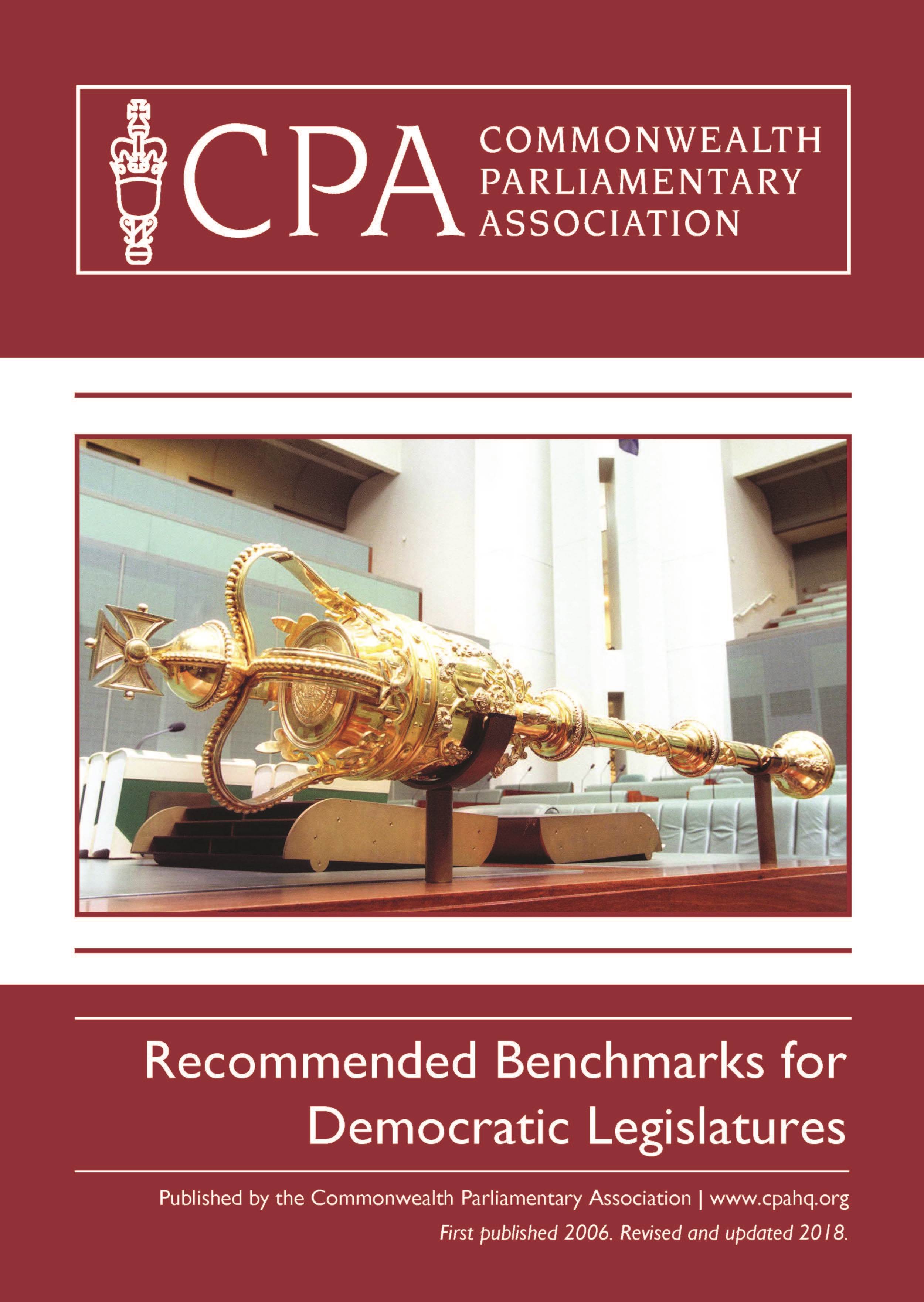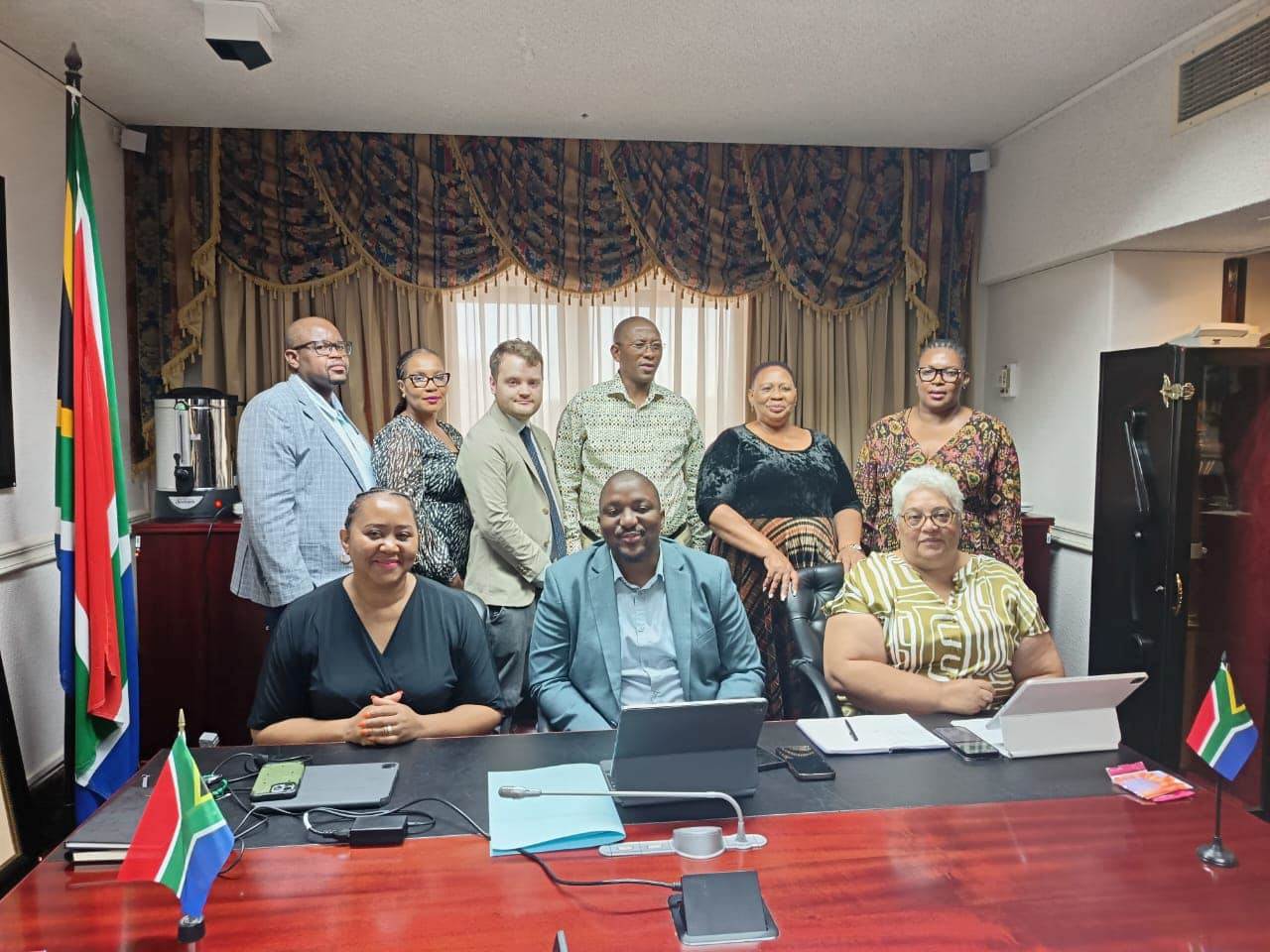
Parliament of Eswatini undertakes CPA Democratic Benchmarks assessment to focus on parliamentary strengthening and reform
A delegation from Commonwealth Parliamentary Association International Headquarters met with the Parliament of Eswatini this week as part of a CPA Benchmarks self-assessment. The CPA’s Recommended Benchmarks for Democratic Legislatures provide a framework for excellence in Commonwealth parliamentary and legislative practice and were updated in 2018 to include the UN Sustainable Development Goals (SDGs), in particular SDG16 on strong and sustainable democratic institutions. In recent years, 33 Commonwealth Parliaments have undertaken self-assessments against the updated CPA Benchmarks. The Parliament of Eswatini is now the 34th Commonwealth Legislature to do so.
As part of their visit to Eswatini, the CPA delegation met with the Speaker of the House of Assembly and the President of the Senate, as well as wider Members and staff from both Houses. The CPA team also held discussions with a range of external stakeholders including representatives of Eswatini’s Government, various national agencies, civil society groups and media personnel.
Speaking about the CPA Benchmarks self-assessment on behalf of both Houses of Parliament, the Speaker of Eswatini’s House of Assembly, Hon. Jabulani Mabuza, MP, said:
“The Parliament of the Kingdom of Eswatini is very much humbled by this important CPA self-assessment exercise which, in my opinion, is unprecedented for our Parliament. Allow me to further extend my hearty appreciation to the great CPA team which will be assisting our Parliamentarians and relevant stakeholders in this self-assessment initiative. It has come at the right time for us to capacitate our Parliamentarians and parliamentary service staff in order to execute their Constitutional mandate, as well as representative and legislative responsibilities.
May I also acknowledge His Majesty King Mswati III’s words of wisdom to empower and encourage the active participation of all citizens at all levels in their own governance. This can only be attained in a collaborative effort with the Executive and other stakeholders to provide a better livelihood for all citizens of Eswatini. Good governance is the central ingredient to spearheading this desired result and we are indeed blessed to have the Commonwealth Parliamentary Association help us to achieve our future goals.”
The CPA Benchmarks self-assessment was undertaken by Achmat Patience (International Relations and Protocol Officer) and Margo Goldstone (Director: Strategy and Institutional Oversight) from the Western Cape Provincial Parliament and CPA Headquarters Good Governance Project Manager, Fraser McIntosh.
Following the visit to Lobamba, a report from the CPA Benchmarks self-assessment will be formulated with recommendations for reform to strengthen parliamentary institutions in Eswatini. The Outcomes Report will play an important role in developing the effectiveness of the Parliament of Eswatini and contribute to its implementation of the UN Sustainable Development Goals.
The Secretary-General of the Commonwealth Parliamentary Association, Stephen Twigg, said:
“Effective Parliaments are the cornerstone of good governance, and the CPA works to ensure that Legislatures can function to their maximum potential. Self-assessment against the CPA Benchmarks ensures that Parliaments can vigorously scrutinise their practices and procedures to become better performing Legislatures. In addition, the CPA Benchmarks self-assessments have strengthened public outreach, engagement and confidence.”
The CPA Benchmarks self-assessment was supported with funding from the UK Foreign, Commonwealth and Development Office (FCDO). The CPA supports Parliaments to fulfil the outcomes of the self-assessments through CPA Technical Assistance Programmes which could involve updating the Legislature’s Rules of Procedure, training for Parliamentarians and parliamentary staff or developing corporate policies and strategic plans. These project outputs will continue to strengthen Legislative institutions for improved good governance across the Commonwealth.
To find out more about this project please email hq.sec@cpahq.org. The CPA's Recommended Benchmarks for Democratic Legislatures are also available to download from the CPA website.






